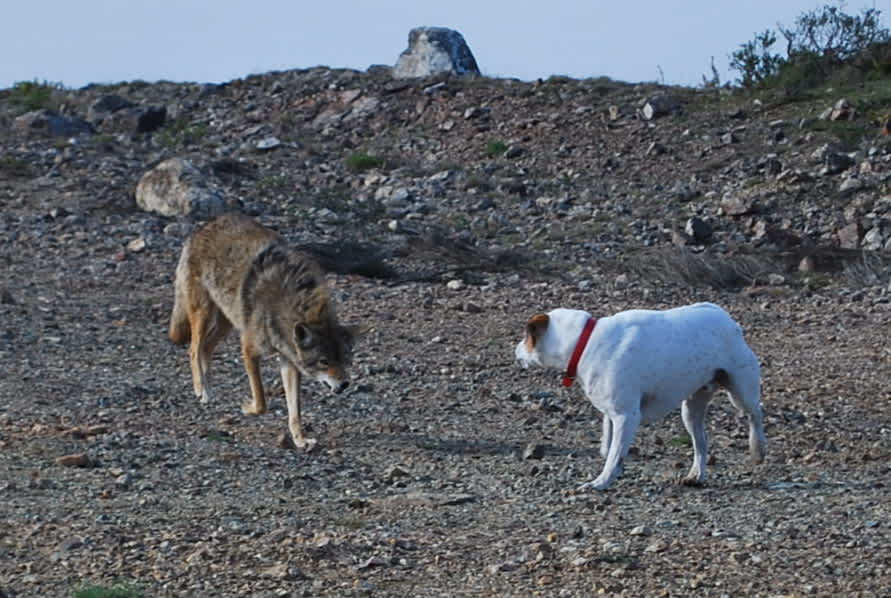Tired of Coyotes? Rub Deodorant Around Your Property
OutdoorHub Reporters 08.20.13

Professional coyote trapper Brad Hilfrink and his son know of an easy and inexpensive way to ward off the nuisance canines: marking your home with deodorant. Many homeowners who live in coyote territory have already adopted this or similar methods, and while it may not be foolproof, it can offer at least some relief from the sounds of coyotes at night. Perhaps even more important, it may prevent the disappearance of a beloved family pet.
“They don’t like the smell of humans, it scares them,” Hilfrink told WCSC. “You can take deodorant sticks and you can rub them around the trees, around your house and trash can.”
Like most canines, coyotes have an excellent sense of smell and have grown to associate certain smells with humans. Unlike other man-made scents, common deodorants and antiperspirants can trick the coyote into believing a person is very close. Hilfrink adds that common sense measures like removing trash and pet food from around the house can go a long way.
“Pet food, a lot of people feed their animals outside. That is bringing animals into your backyard which brings coyotes into your back yard,” Hilfrink said.
The trapper runs Creature Catchers, an animal removal service that serves Sullivan’s Island, South Carolina. The town is not alone in suffering an increase in coyote sightings, which is happening in many parts of the country due to a swelling coyote population. The local police department has already put out warnings advising residents to make necessary precautions against coyotes, especially for their pets. According to the South Carolina Department of Natural Resources (DNR), coyotes have played a role in the drastic decline of whitetail deer in the state, a decrease of over 30 percent since 2002. Coyotes can and will hunt deer fawn, small game, and the occasional domestic animal. The South Carolina DNR is currently encouraging hunters and trappers to control coyotes in order to benefit whitetails.
South Carolina’s trapping season runs from December 1 to March 1 and no license or permit is required to trap within 100 yards of your own home. For more information on the state’s coyote regulations, visit here.

